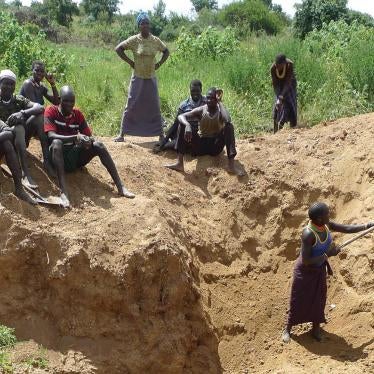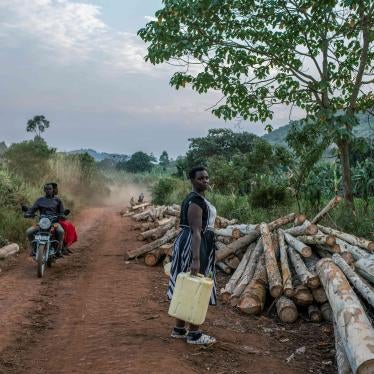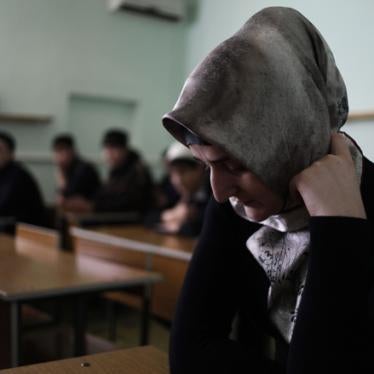Meri, an indigenous woman in northeastern Uganda, was shocked when strangers, accompanied by soldiers, showed up unannounced on her land in late 2012 and started to take rock samples without explanation. One of her neighbours described company representatives drilling and extracting samples inside her home. These stories are not isolated. Mining companies, in co-ordination with the government, are starting to explore for minerals in the Karamoja region without first getting the permission of traditional landowners. And the government has condoned these practices.
Uganda, potentially on the verge of a mining boom, is repeating, it seems, the mistakes made by many of its resource-rich neighbours: exploitation of vast natural resources without oversight and designed to benefit only a few.
Mining development can be a boon, bringing jobs and better security, services and basic infrastructure to impoverished populations. Instead, although it has led to growth in many parts of sub-Saharan Africa, the scramble for Africa’s minerals has done little to improve services or opportunities for the poor. Many of the most resource-rich countries of the region, from Equatorial Guinea to Zimbabwe, remain unlikely to meet the United Nations’ Millennium Development Goal of eradicating extreme poverty.
Like many other mining regions in Africa, Karamoja is marked by severe poverty. About 82% of its people live on less than $1 a day and 45% of children face chronic malnutrition. Uganda’s government has promoted private investment in mining as the answer, but without involving the people living there.
The mining companies involved in Uganda are not among the big players and may not be represented at the African Mining Indaba in Cape Town this week, at which sustainable development, conflict resolution, and how mining affects communities will be key issues. The experience of Karamoja’s people, however, should serve as an example of how companies and governments should not act.
People we spoke to in Karamoja do not oppose mining in principle, but they want to be included in decisions about their land before companies start digging it up. They want to know what companies are going to do about potential problems for their environment and their rights.
The Ugandan government has often treated the people of Karamoja with paternalistic indifference or even contempt. Senior government officials’ statements on the region often drip with prejudice and belittle their traditional semi-nomadic lifestyles. Karamoja Affairs Minister Janet Museveni has encouraged development partners to support a government programme to "stop nomadism" because "the nomadic way of life is outmoded". The government has also labelled those who have questioned its investment decisions throughout the country "economic saboteurs".
Donors, including the World Bank, have also failed the people of Karamoja, investing in reforming Uganda’s mining sector without ensuring indigenous land owners can determine how their land is used and share in the benefits.
And the mining companies have run roughshod over people’s rights. East African Mining, a junior mining company based in the Channel Islands, began exploring for gold in Kaabong, Karamoja, in 2012. The government gave the company the legal right to do it.
But residents found out only when employees, accompanied by soldiers, turned up to take samples. Many people told us they were frightened when the company employees appeared with soldiers standing guard. In the course of "cordon and search" operations in the region since 2006, supposedly to ensure disarmament, soldiers killed, tortured, and arbitrarily detained many people, and destroyed property.
In South Africa, after strike action in the platinum belt in August 2012 led to the killing of 34 miners, there has been growing awareness among mining companies that social and economic disparities in the communities they work in need to be addressed. The gathering in Cape Town this week should make this a central focus of its discussions.
Indigenous people should not be subject to development by fiat. They have the right to be involved in development choices, free of coercion or intimidation, and should share in the benefits, without fearing that their rights will be violated.
Jessica Evans is the senior advocate and researcher on international financial institutions in the Business and Human Rights Division of Human Rights Watch and an author of “How Can We Survive Here?” The Impact of Mining on Human Rights in Karamoja, Uganda. You can follow her on twitter at evans_jessica.







